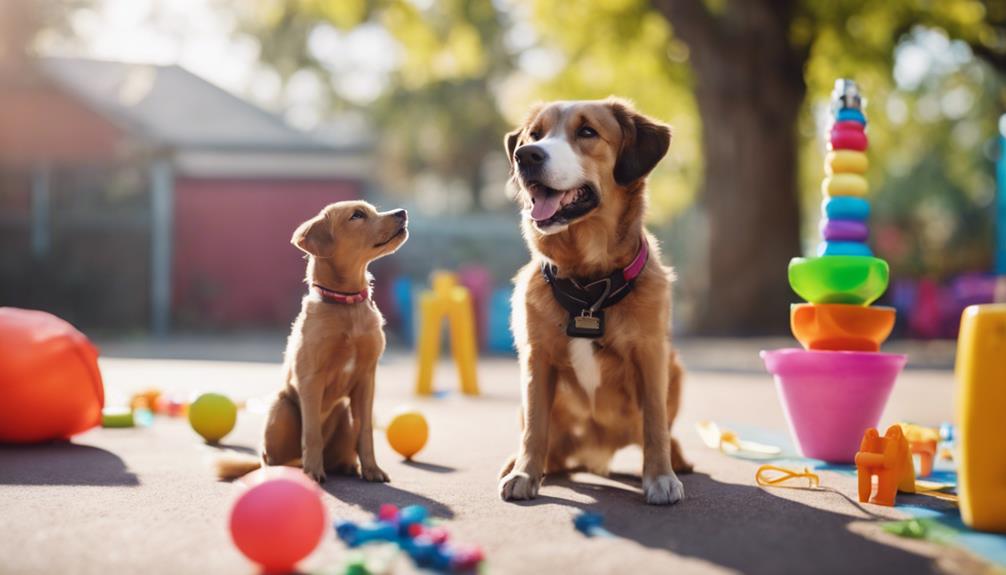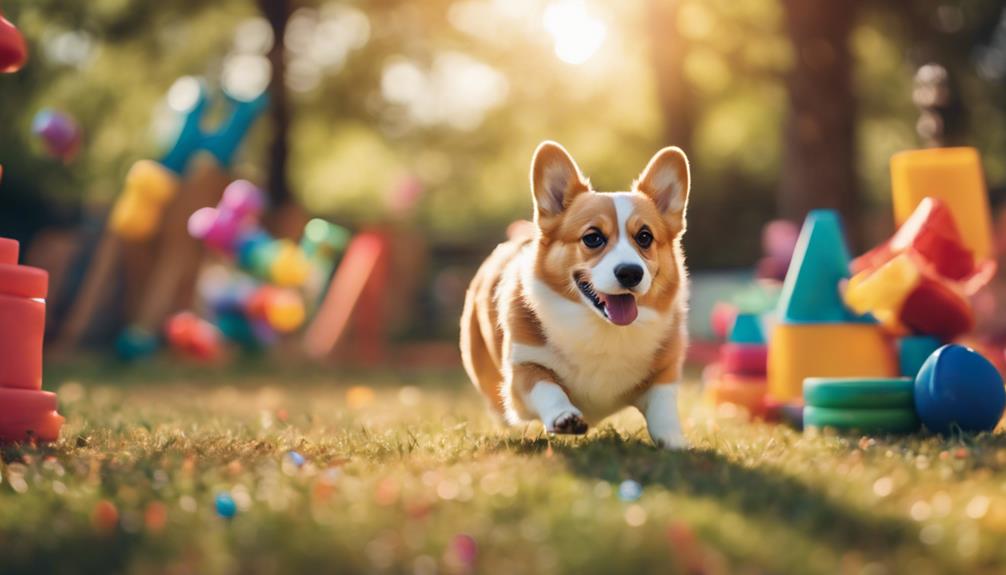Training Corgis presents unique challenges that require a well-structured approach for effective results. By understanding their behavior and implementing five key strategies, trainers can navigate issues such as stubbornness and distractions. These strategies encompass establishing consistent routines, utilizing positive reinforcement, fostering socialization, and addressing common behavioral obstacles. As we explore these methods, it becomes clear that each plays a critical role in shaping a well-behaved companion. However, the nuances of each strategy may hold the key to unlocking a more harmonious training experience.
Understanding Corgi Behavior

Understanding Corgi behavior is essential for effective training, as their unique temperament and characteristics significantly influence how they respond to various teaching methods.
Corgis are known for their intelligence and playful nature, which can make training both enjoyable and challenging. Their breed characteristics include strong herding instincts, making them prone to barking and chasing.
Additionally, corgi communication often involves a mix of vocalizations and body language, requiring trainers to be attentive to their cues. Recognizing these behaviors can help owners tailor their training strategies.
Consistent Training Routines
Establishing consistent training routines is vital for reinforcing desired behaviors in Corgis, as regular practice helps solidify their learning and fosters a sense of security.
To maintain training motivation, it's essential to incorporate routine flexibility. This allows for adjustments based on the dog's mood, energy levels, or environmental factors. For instance, training sessions can be shorter or longer depending on the Corgi's engagement. Additionally, varying the activities within the routine keeps the training enjoyable and prevents monotony.
Key strategies include:
- Scheduling sessions at the same time daily to create familiarity.
- Mixing up commands and tricks to maintain interest.
Positive Reinforcement Techniques

Positive reinforcement techniques effectively encourage desirable behaviors in Corgis by rewarding them for their accomplishments, thereby fostering a positive learning environment.
These methods utilize reward systems that include treats, praise, or playtime, which are crucial motivation factors for these dogs. By consistently applying positive reinforcement, trainers can establish clear expectations and encourage repeat behaviors.
- Consistency: Ensure rewards are given immediately after the desired behavior.
- Variety: Use different types of rewards to maintain your Corgi's interest.
- Gradual Challenges: Start with simple commands and gradually introduce more complex tasks.
This approach not only enhances the training experience but also strengthens the bond between the trainer and their Corgi, making learning enjoyable and effective.
Socialization and Interaction
Building on the foundation of positive reinforcement, socialization and interaction play a vital role in a Corgi's overall development and well-being.
Engaging in group activities fosters essential skills, helping Corgis learn how to communicate and interact with other dogs and people.
Playtime importance cannot be overstated; it not only provides physical exercise but also promotes mental stimulation, reducing stress and anxiety.
Activities like dog parks or training classes encourage healthy competition and collaboration among dogs.
Regular participation in these settings helps Corgis develop confidence and social skills, making them well-adjusted companions.
Owners should prioritize these interactions to ensure their Corgis thrive in various environments, leading to happier and more balanced dogs overall.
Addressing Common Corgi Issues

Addressing common Corgi issues requires a proactive approach that focuses on understanding their unique behavioral traits and needs.
Corgis, known for their intelligence and energy, often display stubbornness, which can complicate training. Additionally, they can be easily distracted by their surroundings, making consistent training essential.
Here are some strategies to help overcome these challenges:
- Establish Clear Commands: Use simple, consistent commands to minimize confusion.
- Use Positive Reinforcement: Reward good behavior to encourage compliance and reduce stubbornness.
- Create a Distraction-Free Environment: Train in a quiet space to help your Corgi focus better.
- Incorporate Play into Training: Make sessions engaging to maintain their interest and reduce distractions.
These strategies will enhance training effectiveness and strengthen the bond with your Corgi.

